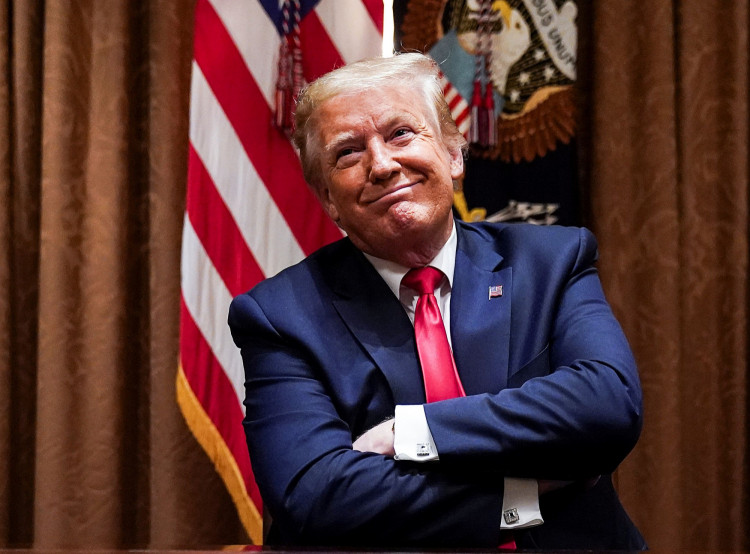Manhattan District Attorney Alvin Bragg has taken a significant legal step by requesting a judge to impose a gag order on former President Donald Trump in connection to the criminal case involving hush money payments. This legal maneuver comes in the wake of a noticeable escalation in threats directed towards the DA's office, attributed to Trump's inflammatory public statements.
The request for a gag order is grounded in the unprecedented volume of threats received by Bragg's office, which have intensified following Trump's social media campaigns against the DA. NYPD Sgt. Nicholas Pistilli, who leads Bragg's security detail, has reported an "extraordinary surge" in menacing behavior, with the NYPD Threat Assessment and Protection Unit logging a concerning 89 threats in 2023 alone, a stark increase from a solitary threat recorded in the previous year.
This alarming rise in hostility has forced the DA's office to seek judicial intervention to mitigate the impact of Trump's rhetoric, which prosecutors argue could jeopardize the integrity of the upcoming trial. The proposed gag order aims to restrict Trump's ability to make prejudicial public statements about trial participants, including potential witnesses, jurors, and legal personnel, thereby ensuring a fair and orderly judicial process.
The legal filings reveal the extent of the threatening communications, which have included not only an overwhelming number of phone calls and emails but also disturbing letters containing white powder and menacing messages directed at Bragg. These threats have necessitated a collaborative effort between the DA's office and the NYPD's specialized units to assess and address the potential risks.
Prosecutors are drawing parallels between the sought gag order in New York and the existing one in Trump's federal election interference case in Washington, D.C. They argue that the D.C. Circuit's recent upholding of similar restrictions on Trump's speech underscores the necessity and appropriateness of the protective measures they are requesting.
In addition to the gag order, Bragg's office has filed motions to prevent Trump from disclosing jurors' addresses and to limit discussions about the credibility of key witnesses, including Trump's former attorney, Michael Cohen. These motions are part of a broader strategy to safeguard the trial's integrity and protect the individuals involved from undue influence or harm.
Trump's campaign has pushed back against the proposed gag order, framing it as an infringement on the former president's First Amendment rights and the public's right to hear from him. Trump, who has consistently denied any wrongdoing in connection with the hush money payments to adult film actress Stormy Daniels, has pleaded not guilty to the 34 counts laid out in the indictment.
As the trial date approaches, the court's decision on the gag order and other protective measures will be pivotal. The outcome will not only affect the immediate proceedings but also set a precedent for how the legal system navigates the complex interplay between free speech and the need to maintain the integrity and safety of high-profile trials in an increasingly polarized political climate.






